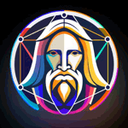AI Image Generator software: purchase guide
What is an AI-Based Image Generator?
AI-based image generators are a revolutionary type of software that uses the power of artificial intelligence to create visual content. Often based on advanced machine learning models like Generative Adversarial Networks (GANs) or Variational Autoencoders (VAEs), they have revolutionized the field of digital art and design. They work by analyzing large datasets of images, learning complex patterns, styles, and artistic nuances, which they can then reproduce and recombine to generate unique new images.
These technologies have varied applications, from professional graphic design and artistic creation to personal use for hobbyists or educational purposes. They enable users to bring their imaginative concepts to life without the need for artistic skills or extensive training. AI-based image generators are also increasingly used in industries such as advertising, film, and video games to create realistic textures, scenes, and characters, significantly reducing the time and costs involved in content creation.
How Does an AI-Based Image Generator Work?
AI-based image generators typically operate through a process of learning and synthesis. Initially, they are trained on large datasets containing thousands or even millions of images. During this training phase, the AI learns to recognize and understand various aspects of visual representation such as color, shape, texture, and spatial relationships.
There are two main types of AI models used:
Generative Adversarial Networks (GANs): GANs consist of two parts - a generator and a discriminator. The generator creates images, and the discriminator evaluates them. The generator continuously improves its output based on the discriminator's feedback, aiming to produce images indistinguishable from real ones.
Variational Autoencoders (VAEs): VAEs work by compressing input data (images) into a smaller encoded representation and then reconstructing the data to its original form. This process helps to learn the essential features of images.
Once trained, users can input parameters or textual descriptions into the AI-based image generator. The AI then uses its acquired knowledge to interpret these inputs and generate images that match the given descriptions or criteria. Advanced models even allow refining aspects such as style, mood, and specific elements, offering high degrees of customization.
Key Features of an AI-Based Image Generator
The main features of AI-based image generators include:
Text-to-Image Conversion: One of the most striking features, it allows users to input text descriptions and receive corresponding images. The AI interprets the text and creates visuals that match the described concepts.
Style Customization: Users can often specify the style of the output image, whether it be photorealistic, artistic (like oil painting or watercolor), or in the style of famous artists.
High Resolution and Detail: Many AI-based image generators are capable of producing high-resolution images with complex details, suitable for professional use in printing or digital media.
Content Flexibility: From portraits and landscapes to abstract art and product designs, these tools can generate a wide range of image types.
Iterative Learning: Some AI-based image generators offer the ability to learn from user feedback, improving their output over time.
Free Alternatives
Several free alternatives to premium AI-based image generators exist, offering users basic AI-driven image creation functionalities:
DeepArt: Uses a neural network to recreate images in the style of famous artists.
Dream by Wombo: A simple app that generates art from text descriptions.
GANPaint Studio: Allows users to draw with AI, modifying images using GAN networks.
Stable Diffusion: Offers a free alternative for those with the necessary hardware, enabling the generation of high-quality images with a great degree of customization.
Although these free versions often have limitations in terms of image resolution, customization options, and range of styles compared to paid software, they still provide an insight into the capabilities of AI in image generation, making the technology accessible to a broader audience.


